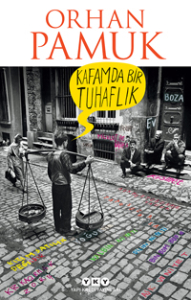 I recently finished reading A Strangeness in My Mind by Orhan Pamuk, his latest novel translated by Ekin Oklap (Knopf, 2015). I miss reading about Mevlut Karatas and a host of other characters who settled in Istanbul.
I recently finished reading A Strangeness in My Mind by Orhan Pamuk, his latest novel translated by Ekin Oklap (Knopf, 2015). I miss reading about Mevlut Karatas and a host of other characters who settled in Istanbul.
Mevlut Karatas, from a poor village in Central Anatolia, sold boza, a mildly alcoholic drink, on the streets of Istanbul. It’s made from fermented wheat and is served with cinnamon and dried chick peas. The drink actually dates back 8000 years in the Mesopotamian area.
Mevlut started off selling boza with his father as a way to make a living. As the years passed, he continued to sell boza to his regular customers and realized he needed to walk the streets at night which he would do for forty years.
“There was only time to mention one of the things Mevlut had been thinking about over the past two weeks: his long nightly walks weren’t just part of his job anymore; they were something he felt he needed to do. When he didn’t go out wandering the streets at night, his powers of thought and imagination flagged.”
 I usually make notes about books I’ve read, my own mini reviews, and that passage really intrigued me. We all need a practice to keep in touch with our own thoughts and our imagination.
I usually make notes about books I’ve read, my own mini reviews, and that passage really intrigued me. We all need a practice to keep in touch with our own thoughts and our imagination.
I remember those fall days in Victoria when I set out each day on my own, either before or after a radiation treatment, to open myself to new neighbourhoods and chance encounters along the way. These days, I’m pretty sedentary except for exercises to get my foot moving again and trips to doctors. I do like the quiet time I have though during which time I’ve done a lot of reading and journal writing.
I’ve had more quiet than usual during this period of convalescence but it’s something we writers need to do. In fact, everyone can use periods of silence and stillness to be in touch with themselves.
Here’s what Rumi had to say:
What I want is to leap out of this personality
And then sit apart from that leaping –
I’ve lived too long where I can be reached.
Rumi had no idea how many ways we can be reached these days although his translator, Coleman Barks, would.
I also finished reading Bone: Dying Into Life by Marion Woodman (Penguin Compass, 2000) recently. It’s “a journal of wisdom, strength, and healing” she kept during the time she was undergoing treatment for cancer in the mid-nineties. I appreciate what Marion wrote about simplifying becoming her total focus.
“I’m noting how anxious I become when I fail to simplify or cannot simplify because of what starts happening around me – phone, TV, letters, ad infinitum,” she wrote. Marion thought that a failure to simplify could lead her back into cancer because she would lose touch with her “life vibration.”
She wrote, near the end of the book: “I must stay in touch with whatever keeps me focused on the still point – the place of exact harmony in body and psyche. Simplify life to that point where the dance can happen – the dance between consciousness and unconscious. So long as I constantly allow other things to interfere, I will never find the moments in each day to reach those listening points of harmony – those seeing points of perception. Concentration that can focus on the moments must come first or the other do not follow. I tend to think I’ll get everything in order and then. No, no, no! That’s not it. Listen to Mozart first, come into harmony first, then clutter will fall away unnoticed.”
I like that approach. You may have found that if you decide to get your chores done first, finding that quiet place again doesn’t work so well. The phone call I return, for instance, may be just the one to knock me out of the quiet place where I can muse, contemplate and allow things to just be. Listen to Mozart first!
 Henry David Thoreau while living on his own at Walden Pond still lived close to the family pencil factory and close enough to his family home for his mother to bring him a sandwich for lunch. He would enjoy contemplating while sitting at the open door of his cabin, hoeing the rows of beans or sweeping the floor. I like what he said about his contemplative practices: “I love a broad margin to my life.”
Henry David Thoreau while living on his own at Walden Pond still lived close to the family pencil factory and close enough to his family home for his mother to bring him a sandwich for lunch. He would enjoy contemplating while sitting at the open door of his cabin, hoeing the rows of beans or sweeping the floor. I like what he said about his contemplative practices: “I love a broad margin to my life.”

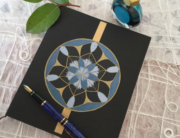

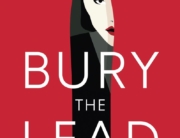


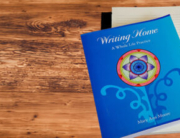







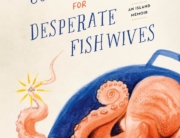



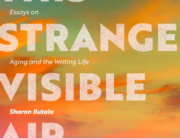

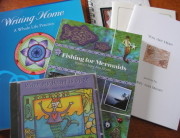



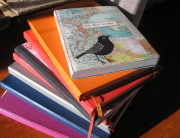
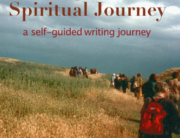

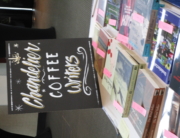




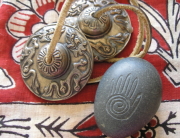


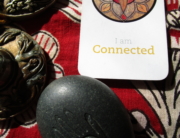




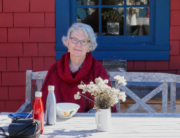
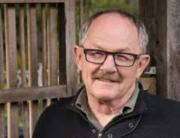
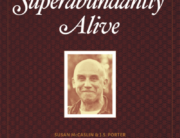

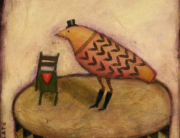


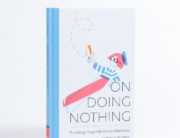



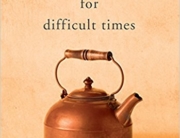

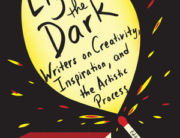

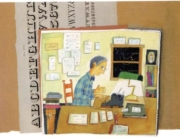

















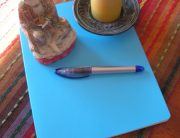





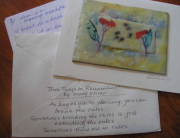



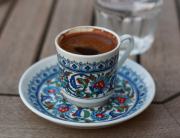
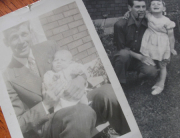
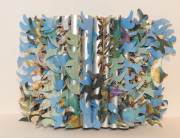




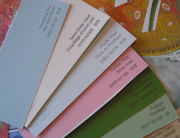



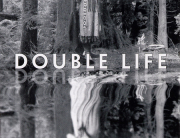

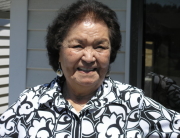
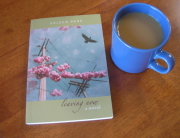




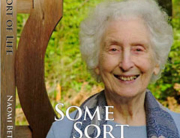

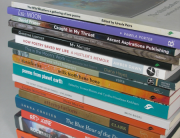

I find as I age being still is very important. I like the way you describe all the different ways we can continue to move through our day and remain quiet and connected to our still point. I find walking outside in my neighborhood in Victoria away from traffic and noise is a good way to remain quiet and connected. Sometimes I can sit on the bus and travel around the city quietly reflecting and contemplating my own thoughts. It is as you say a good practice to do every day. I really enjoyed reading this piece. Thank you.